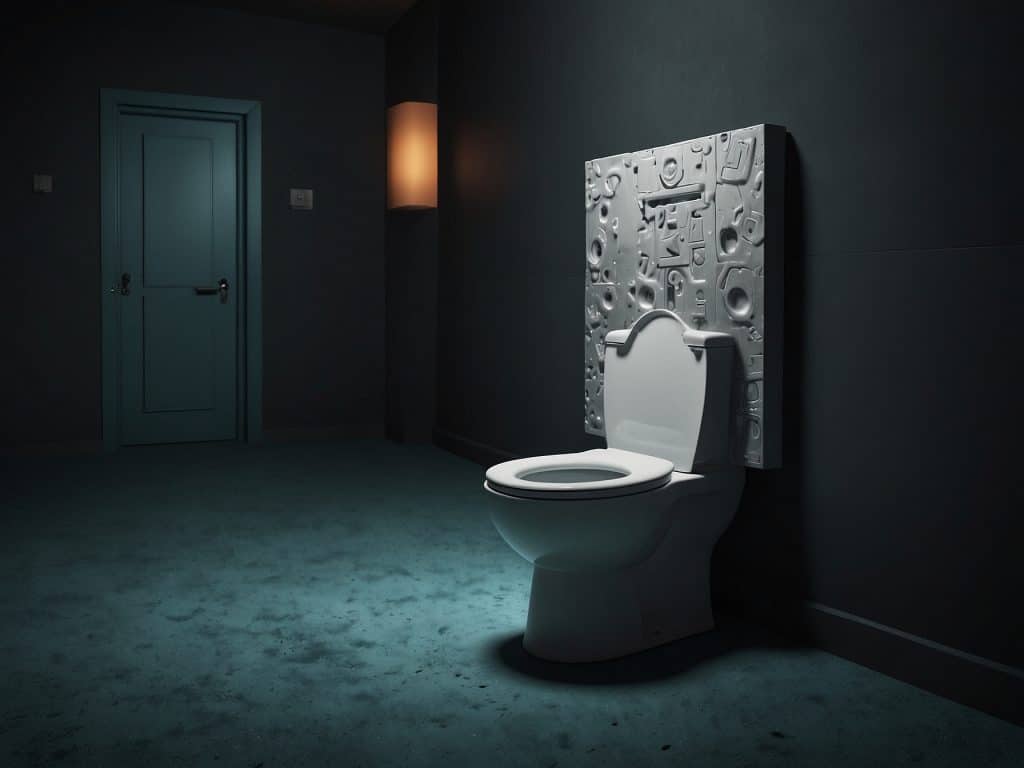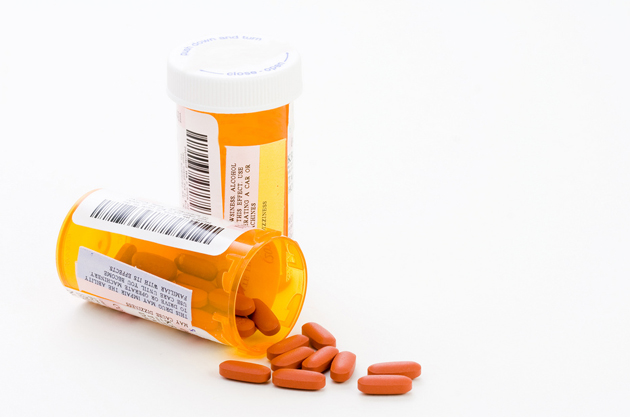Ever found yourself wondering if it’s okay to pour that leftover alcohol down the toilet? You might think it’s a simple solution, but the answer isn’t as straightforward as it seems.
Before you flush away those unwanted spirits, there are crucial things you need to know. This isn’t just about your plumbing; it’s about the environment, too. Understanding the impact of your actions can make all the difference. So, if you’re ready to discover the truth and make informed choices, you’re in the right place.
Let’s dive into why that quick flush might not be the best idea and explore smarter alternatives that keep both your pipes and the planet safe.

Credit: housecleanify.com
Environmental Impact
Pouring alcohol down the toilet might seem harmless, but it can affect the environment. Wastewater systems struggle to process alcohol, potentially harming aquatic life. Consider alternatives like donating or using it for cleaning.
Flushing alcohol down the toilet might seem harmless, but it can have a notable environmental impact. You might not think twice about pouring leftover drinks away, yet this small act can contribute to larger environmental challenges. Understanding the consequences can encourage more responsible choices, which benefit both you and the planet.###Effects On Water Systems
When alcohol enters water systems, it can disrupt the natural balance. It mixes with the water, potentially contaminating supply sources. This can lead to increased treatment costs for local water facilities.Cities rely on complex systems to ensure water is clean and safe. Introducing alcohol into these systems can interfere with their efficiency. It’s crucial to recognize how your actions might strain these resources.###Impact On Aquatic Life
Alcohol can be toxic to aquatic life, even in small amounts. Fish and other marine creatures are sensitive to changes in their environment. Introducing foreign substances like alcohol can harm their health and survival.Consider how a seemingly small amount of alcohol can affect an entire ecosystem. It can disrupt food chains, leading to broader ecological consequences. Making mindful choices can help protect these fragile habitats.Next time you’re tempted to pour alcohol down the drain, think about the broader impact. Could there be a more environmentally friendly way to dispose of it? Your conscious decision can make a positive difference.
Credit: www.motherjones.com
Legal Regulations
Understanding the legal regulations around flushing alcohol is important. Many people may not consider the rules governing waste disposal. But improper disposal can lead to environmental harm. Flushing alcohol down the toilet might seem harmless. Yet, there are laws in place that can affect this action.
Federal Guidelines
Federal regulations address waste disposal to protect water sources. The Environmental Protection Agency (EPA) plays a role in this area. Flushing alcohol can impact water treatment systems negatively. Alcohol is a chemical that needs careful disposal. Ignoring federal guidelines can lead to penalties.
State And Local Laws
State and local laws vary widely. Some places have strict rules about chemical disposal. Flushing alcohol might not be allowed in certain areas. Local water treatment facilities may have specific guidelines. Check with local authorities to understand the rules in your area. Understanding these laws can prevent legal issues.
Safety Concerns
Flushing alcohol down the toilet may harm the environment and water systems. Alcohol can disrupt the treatment processes in wastewater plants. It’s safer to dispose of alcohol according to local regulations, ensuring minimal impact on ecosystems.
Flushing alcohol down the toilet might seem like a quick solution to dispose of unwanted beverages or expired products. But have you ever stopped to consider the safety concerns associated with this practice? It’s not just about eliminating waste; it’s about understanding the potential impact on your plumbing system, the environment, and even your health.Potential Hazards
Pouring alcohol down the toilet can cause serious damage to your plumbing system. Alcohol is a solvent, which means it can erode the pipes over time.Imagine the inconvenience and cost of a plumbing repair because of a corroded pipe. It’s a problem you can easily avoid by choosing safer disposal methods.Your local water treatment facilities might struggle to process alcohol effectively. This can lead to environmental damage as untreated alcohol could affect aquatic life in nearby water bodies.Health Risks
While it might not seem like a direct health risk, improper disposal can indirectly impact your well-being. Alcohol can combine with other chemicals in the sewage system, potentially creating harmful substances.Could these substances eventually end up in the water supply? Consider the implications for your health and your community’s.Think about the safety of sanitation workers. Exposure to high concentrations of alcohol in sewage can pose health risks, particularly if it’s mixed with other hazardous materials.If you’re ever unsure about how to dispose of alcohol safely, research or contact local waste management services for guidance.How do you plan to dispose of alcohol in a way that safeguards your home, health, and the environment?Alternative Disposal Methods
Disposing of alcohol by flushing it down the toilet might harm the environment. Alcohol can disrupt water treatment processes. Instead, consider donating unopened bottles or using them for cleaning tasks around the home.
If you’ve ever found yourself staring at a bottle of leftover alcohol and wondering what to do with it, you’re not alone. Flushing it down the toilet might seem like an easy solution, but it’s not the most environmentally friendly option. Instead, there are alternative methods to dispose of alcohol responsibly, ensuring you keep both your home and the planet safe.Recycling Options
Did you know that some types of alcohol containers can be recycled? Glass bottles, for example, are often accepted by local recycling programs. Check with your local waste management service to see if they accept glass and plastic alcohol bottles.Recycling helps reduce waste and supports sustainable practices. If the alcohol is still sealed, some recycling centers might even accept it. Remember, recycling is not just about getting rid of waste; it’s about giving materials a second life.Safe Disposal Tips
Pouring alcohol down the toilet can harm aquatic life, so it’s better to find safe disposal methods. If you have a small amount of alcohol, consider diluting it with water and pouring it into a compost pile if you have one. This method allows the alcohol to break down naturally without harming the environment.You could also use the alcohol for cleaning purposes around the house. Alcohol can be a handy disinfectant for surfaces, mirrors, and even electronic screens. Just ensure it’s properly diluted to avoid any damage.Thinking creatively about disposal can lead to discovering new ways to repurpose unwanted items. Have you ever tried using alcohol in your garden to ward off pests? It can be an unexpected yet effective solution for keeping unwanted bugs at bay.By taking these steps, you’re not only handling your waste responsibly but also contributing to a healthier environment. Have you discovered any unique ways to dispose of alcohol safely? Share your tips with others and make a positive impact!Common Misconceptions
When it comes to disposing of alcohol, many people are unsure of the best method. You might have heard that flushing alcohol down the toilet is a quick solution. However, this idea is filled with misconceptions that can lead to environmental harm and plumbing issues. Let’s debunk these myths and uncover the truth.
Alcohol As A Cleaning Agent
One common misconception is that alcohol can act as an effective cleaning agent when flushed down the toilet. While alcohol does have disinfecting properties, it is not designed to clean your plumbing system. In fact, using it this way can do more harm than good, potentially damaging your pipes and harming the water treatment process.
Think about this: your toilet was not built to handle alcohol. It’s meant for waste and water. So, the next time you consider using alcohol as a cleaner, remember that there are more suitable products available that won’t compromise your plumbing or the environment.
Flushing As A Disposal Solution
Another myth is that flushing alcohol is a safe and environmentally friendly disposal method. It might seem like a harmless solution, but it isn’t. Alcohol can disrupt the bacterial balance in sewage systems, which are crucial for breaking down waste.
Have you ever wondered why wastewater treatment plants exist? They rely on a delicate microbial balance to treat water efficiently. By flushing alcohol, you’re potentially upsetting this balance, leading to greater environmental issues.
Instead of flushing, consider alternatives like donating unopened bottles or using them in cooking or DIY projects. It’s better for your pipes, and it’s better for the planet.
So, the next time you’re considering how to dispose of alcohol, ask yourself: is flushing really the best option? A little thought now can save a lot of trouble later.

Credit: www.instagram.com
Frequently Asked Questions
Can You Flush Alcohol Down The Toilet?
Flushing alcohol is not recommended. It can harm aquatic life and disrupt water treatment systems.
What Happens If You Flush Alcohol?
Alcohol can kill beneficial bacteria in sewage systems. This affects waste breakdown processes negatively.
Is It Safe For Plumbing To Flush Alcohol?
No, alcohol can corrode pipes over time. It may lead to costly plumbing repairs.
How To Dispose Of Alcohol Safely?
Use a hazardous waste facility for disposal. This protects the environment and water systems.
Does Flushing Alcohol Affect The Environment?
Yes, it contaminates water sources and harms wildlife. Always dispose of alcohol responsibly.
Conclusion
Flushing alcohol down the toilet is not a good idea. It harms plumbing systems and the environment. Sewer systems aren’t designed for alcohol disposal. Instead, consider safer alternatives. Look for local disposal guidelines or recycling centers. They often accept hazardous household waste.
Protect the environment and your plumbing. Make informed decisions about disposal. It matters more than you think. Keep waterways clean and functional. Every small action counts. Take a moment to choose the right path. Your responsible actions can make a big difference.
